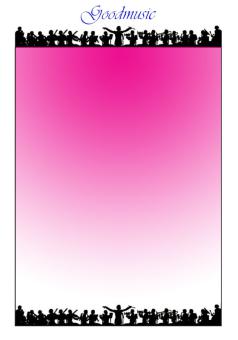John Philip Sousa
Liberty Bell
John Philip Sousa
Liberty Bell
- Compositor John Philip Sousa
- Adaptador Peter Lawson
- Editorial Goodmusic Publishing
- Nº de pedido GMCL149-00
IVA incluido.,
Más gastos de envío
No disponible en todos los países. Leer más
Descripción de la:
Orchestration:
Piccolo, Flute, 2 Oboes, 2 Clarinets in Bb, 2 Bassoons
4 Horns in F, 2 Trumpets in Bb, 3 Trombones, Tuba
Percussion (Triangle, Cymbals, Snare drum, Bass drum, Tubular bells), Harp (optional)
Strings (Violin 1, Violin 2, Viola, Cello, Double Bass)
The Liberty Bell, some 12 feet in circumference and possessing a 44-pound clapper, was cast in London's Whitechapel and was inscribed with words from Leviticus: ôProclaim Liberty throughout all the Land unto all the inhabitants thereofö. It was shipped across the Atlantic to the Pennsylvania State House and became a symbol for freedom. To celebrate its appearance at the Chicago World Fair of 1893, John Philip Sousa composed what was to become one of his most popular marches, The Liberty Bell.
Sousa's tuneful tribute has in recent decades been immortalised as the theme tune for the BBC comedy programme Monty Python's Flying Circus. It is usually heard in various wind/brass band arrangements but the starting point of this fresh orchestration for standard symphony orchestra was the original piano version of 1893. The original binary form of the march might seem to unsatisfactory in the concert hall: the Monty Python theme would only be heard at the beginning, never to return. In this arrangement the initial theme is brought back at the end to create a ternary structure.
If you wish to play the 'Pythonesque' ending, recalling Terry Gilliam's animation of a large foot squashing all and sundry and bringingthe music to an abrupt and somewhat comical end, use the penultimate bar and omit the final bar. For a non-comical ending omit the penultimate bar and play the final bar. If you are feeling really 'off the wall' a third, quirky, alternative is to play both!
Duration: 3 1/2 minutes
A PACK comprises one full score, string parts 4/4/3/4/2 and any wind, brass and percussion parts.
Piccolo, Flute, 2 Oboes, 2 Clarinets in Bb, 2 Bassoons
4 Horns in F, 2 Trumpets in Bb, 3 Trombones, Tuba
Percussion (Triangle, Cymbals, Snare drum, Bass drum, Tubular bells), Harp (optional)
Strings (Violin 1, Violin 2, Viola, Cello, Double Bass)
The Liberty Bell, some 12 feet in circumference and possessing a 44-pound clapper, was cast in London's Whitechapel and was inscribed with words from Leviticus: ôProclaim Liberty throughout all the Land unto all the inhabitants thereofö. It was shipped across the Atlantic to the Pennsylvania State House and became a symbol for freedom. To celebrate its appearance at the Chicago World Fair of 1893, John Philip Sousa composed what was to become one of his most popular marches, The Liberty Bell.
Sousa's tuneful tribute has in recent decades been immortalised as the theme tune for the BBC comedy programme Monty Python's Flying Circus. It is usually heard in various wind/brass band arrangements but the starting point of this fresh orchestration for standard symphony orchestra was the original piano version of 1893. The original binary form of the march might seem to unsatisfactory in the concert hall: the Monty Python theme would only be heard at the beginning, never to return. In this arrangement the initial theme is brought back at the end to create a ternary structure.
If you wish to play the 'Pythonesque' ending, recalling Terry Gilliam's animation of a large foot squashing all and sundry and bringingthe music to an abrupt and somewhat comical end, use the penultimate bar and omit the final bar. For a non-comical ending omit the penultimate bar and play the final bar. If you are feeling really 'off the wall' a third, quirky, alternative is to play both!
Duration: 3 1/2 minutes
A PACK comprises one full score, string parts 4/4/3/4/2 and any wind, brass and percussion parts.

